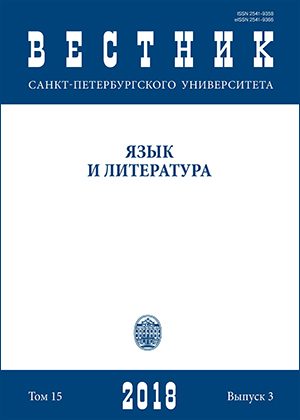Between sympathy and contagion: “Bartleby the Scrivener” and the US charity discourse of the mid-19th century
DOI:
https://doi.org/10.21638/spbu09.2018.305Abstract
The paper analyzes a famous short story “Bartleby the Scrivener” (1854) by H. Melville against the context of philanthropic practices and charity rhetoric of the antebellum United States. It claims that the narrator, or the lawyer, represents the type of a sentimental philanthropist: he feels sympathy and compassion for Bartleby and yet acts in accordance with moral conventions and prejudices of his time. Almost all scholars of the antebellum philanthropy point at its ambivalence. On the one hand, charity was bearing on the idea of Christian duty and sentimental sympathy to the poor and to the destitute, on the other most of the charity practices of the period professed the Smithian principles of reasonable economy, or the “economy of charity”, to use the term of an American poet Lydia Sigourney. The paper argues that Melville employs the stereotypes of contemporary charity discourse in order to pose complex ethical questions and suggests an alternative model of relationship between a philanthropist and his dependent. For example, such well-known antebellum charity practice as the visit of the poor is represented in the story in the grotesque and inverted form. Sympathy is replaced by contagion that breaks with the sentimental notion of charity based on the idea of the sameness of universal values and sentiments. The article also demonstrates how in Melville’s short story, the very idea of charity is removed from the sphere of familiar and canny and begins to verge on the uncanny and the on Gothic.
Keywords:
G. Melville, Bartleby the Scrivener, benevolence, ethics, philanthropist, unworthy poor, visits of the poor, sympathy, contagion, uncanny
Downloads
References
References
Downloads
Published
How to Cite
Issue
Section
License
Articles of "Vestnik of Saint Petersburg University. Language and Literature" are open access distributed under the terms of the License Agreement with Saint Petersburg State University, which permits to the authors unrestricted distribution and self-archiving free of charge.






